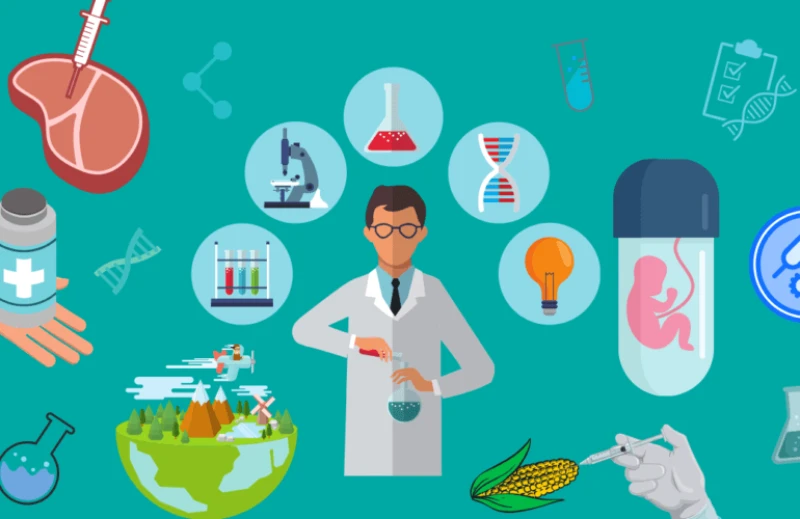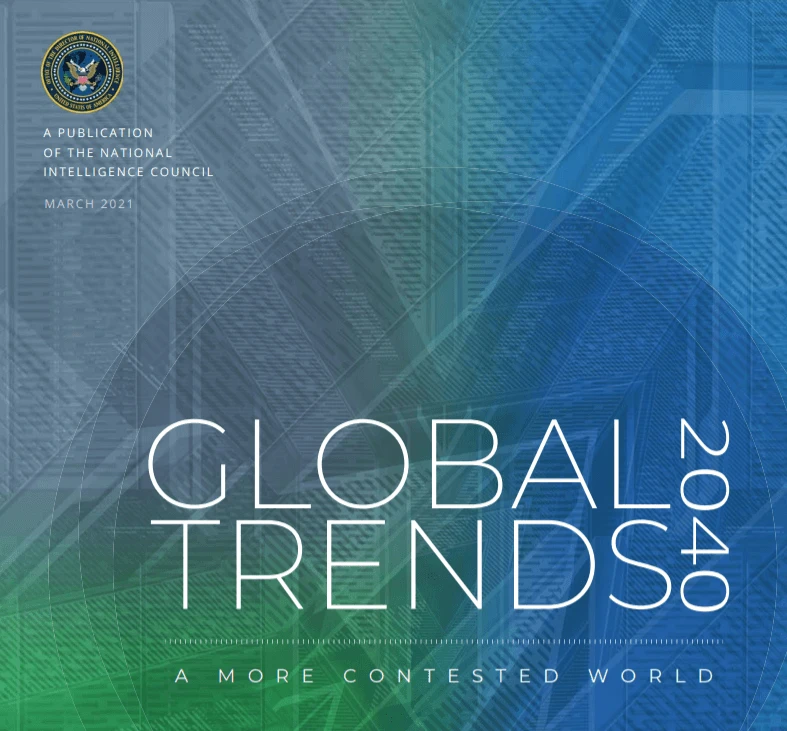US intelligence report predicts greater global role for biotechnology
US intelligence report predicts greater global role for biotechnology


If the projection, included in a new report by the United States National Intelligence Council (NIC) bears out, it will represent a significant leap from biotechnology’s current contribution to the global economy. Although worldwide figures are not clear, in 2019 the bioeconomy was estimated to comprise 5% of the total US economy. The figure rises to 10 percent in the European Union, which applies a broader definition to bioeconomic activities.

Biotechnology innovations most likely will enable societies to reduce disease, hunger and petrochemical dependence by 2040 while transforming how we interact with the environment and each other, the report states. Societies will be challenged to harness these beneficial advancements while addressing the market, regulatory, safety and ethical concerns surrounding technologies like genetically modified (GM) crops and foods.
An improved capacity to predictably manipulate biological systems, augmented by advances in automation, information and materials sciences, is already spurring unprecedented innovation in health, agriculture, manufacturing and cognitive sciences, notes the report, entitled “Global Trends 2040: A More Contested World.”
More on biotechnology
In a section detailing the benefits and risks of advanced biotechnology applications, the report observes GM organisms and biological processes will be used to create new materials and medicines that lead to the production of novel molecules, materials and treatments. Agriculture and food production will be transformed through advanced biotechnology, the report notes, leading to a wider variety of cheaper, more nutritious foods produced with lower environmental impact.
However, the report warns of potential risks of associated with reduced biodiversity, social tensions over genetic modification and workforce and supply chain disruptions. It also cautions that the pace of technological change, notably developments in advanced manufacturing, artificial intelligence and biotechnology, may hasten disruptions to manufacturing and global supply chains, eliminating some modes of production and jobs. Novel technologies will appear and diffuse faster and faster, disrupting jobs, industries, communities, the nature of power and even what it means to be human.
Shifting supply chains could disproportionately affect less advanced economies, while many new jobs will require workers with improved or retooled skills.
Advanced biotechnology applications, such as digital health and personal medicine, will allow for tailored medical treatments using artificial intelligence, the report suggests. This approach will combine data from genetic sequencing, diagnostics and biomonitoring to improve upon healthcare. There will also be cell- and gene-based therapies, combined with improvements in drug design and production for faster disease response. This will ensure rapid and more effective medical treatments and on-demand medicine production. But again, NIC warns of disputes over research and design prioritization in developing versus developed countries.
COVID-19 pandemic
The report describes the ongoing COVID-19 pandemic as the most significant, singular global disruption since World War II, with health, economic, political and security implications that will ripple for years to come. It has shaken long-held assumptions about resilience and adaptation and created new uncertainties about the economy, governance, geopolitics and technology. The pandemic is slowing and possibly reversing some longstanding trends in human development, especially poverty and disease reduction and closing gender inequality gaps.
The longest lasting reversals may be lost momentum in reducing poverty across Africa, Latin America and South Asia, followed by losses in gender equality. The resources devoted to fighting COVID-19 and social restrictions could reverse years of progress against malaria, measles, polio and other infectious diseases by consuming key financial, material and personnel resources, the report warns.
On a brighter note, the global COVID-19 vaccine development effort has shown that technologies, often integrated in new and imaginative ways, can be quickly reapplied from their original use to solve crisis needs. The research that enabled the unprecedented and rapid development of effective COVID-19 vaccines built on decades of foundational investments in the health sciences. The report predicts that similarly, long standing challenges like climate change may be moderated by bringing together suites of technological solutions that each address one element of a much larger issue.
The NIC, which is at the center of strategic thinking within the US intelligence community, issues the report every four years to assess key trends and uncertainties that will shape the US and the world at large over the next two decades and deliver information that can guide US policy. However, it does not represent the official, coordinated view of the US intelligence community nor US policy.
Joseph Opoku Gakpo is a 2016 Cornell Alliance for Science Global Leadership Fellow and contributes to the Multimedia Group Limited in Ghana, working with Joy FM, Joy News TV, and MyJoyOnline. He has a master’s degree in communications studies from the University of Ghana and is a member of the Ghana Journalists Association. Find Joseph on Twitter @josephopoku1990
A version of this article was originally posted at the Cornell Alliance for Science and has been reposted here with permission. The Cornell Alliance for Science can be found on Twitter @ScienceAlly

 | Videos | More... |

Video: Nuclear energy will destroy us? Global warming is an existential threat? Chemicals are massacring bees? Donate to the Green Industrial Complex!
 | Bees & Pollinators | More... |

GLP podcast: Science journalism is a mess. Here’s how to fix it

Mosquito massacre: Can we safely tackle malaria with a CRISPR gene drive?

Are we facing an ‘Insect Apocalypse’ caused by ‘intensive, industrial’ farming and agricultural chemicals? The media say yes; Science says ‘no’
 | Infographics | More... |

Infographic: Global regulatory and health research agencies on whether glyphosate causes cancer
 | GMO FAQs | More... |

Why is there controversy over GMO foods but not GMO drugs?

How are GMOs labeled around the world?

How does genetic engineering differ from conventional breeding?
 | GLP Profiles | More... |

Alex Jones: Right-wing conspiracy theorist stokes fear of GMOs, pesticides to sell ‘health supplements’




 Trust issues: What happens when therapists use ChatGPT?
Trust issues: What happens when therapists use ChatGPT? Fighting deforestation with CO2: Biotechnology breakthrough creates sustainable palm oil alternative for cosmetics
Fighting deforestation with CO2: Biotechnology breakthrough creates sustainable palm oil alternative for cosmetics California, Washington, Oregon forge immunization alliance to safeguard vaccine access against federal undermining
California, Washington, Oregon forge immunization alliance to safeguard vaccine access against federal undermining Viewpoint — Fact checking MAHA mythmakers: How wellness influencers and RFK, Jr. undermine American science and health
Viewpoint — Fact checking MAHA mythmakers: How wellness influencers and RFK, Jr. undermine American science and health 30-year-old tomato line shows genetic resistance to devastating virus
30-year-old tomato line shows genetic resistance to devastating virus Viewpoint: Video — Big Solar is gobbling up productive agricultural land and hurting farmers yet providing little energy or sustainabilty gains
Viewpoint: Video — Big Solar is gobbling up productive agricultural land and hurting farmers yet providing little energy or sustainabilty gains The free-range chicken dilemma: Better for birds, but with substantial costs
The free-range chicken dilemma: Better for birds, but with substantial costs ‘You have to treat the brain first’: Rethinking chronic pain with Sanjay Gupta
‘You have to treat the brain first’: Rethinking chronic pain with Sanjay Gupta
